Why Is It Better To Have Less Stuff | A Minimalist Lifestyle
“Cultivating a mindful and intentional approach to consumption | Decluttering your living space can help with decluttering your mind.” 05.12.24 --updated 06.18.2024--
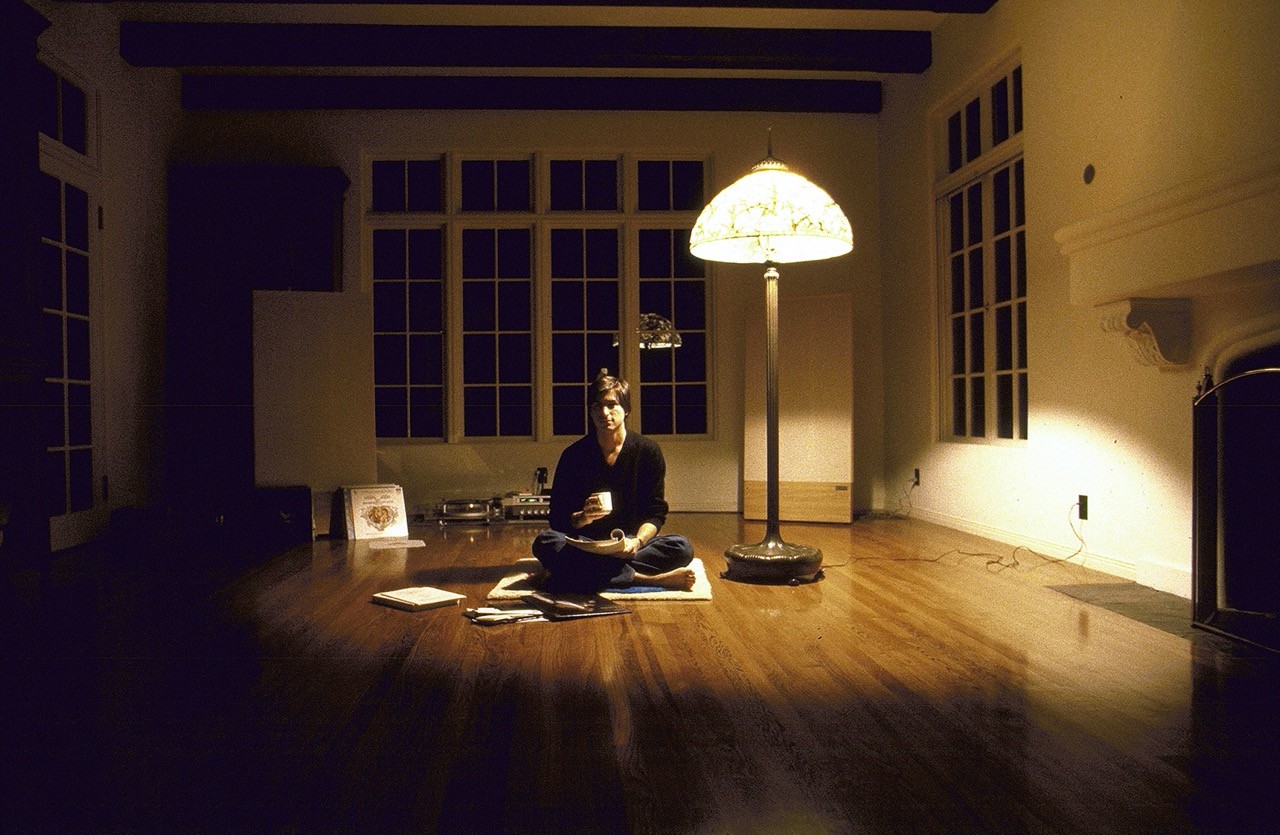
What Is Minimalism?
Imagine, you're standing in a valley surrounded by snow capped mountains, there's no wind only sunshine, and you've stumbled across
a small body of water resembling a sheet of glass. You look down into the water and see your reflection staring back at you. A sudden gust of wind and your reflection turns into
a million little ripples, softly breaking up over the glass-like water. It's pure zen. Yeah that's minimalism.
Minimalism by definition is a style that is characterized by extreme spareness and simplicity. Minimalists believe that
less is more. They don't believe in accumulating stuff. This doesn't necessarily mean you need to renounce all of your worldly
possessions and get rid of your belongings.
Benefits Of Less Stuff
1. You Know What You Own2. Less Clutter = Less Stress
3. Better Sense Of Freedom
4. More Money In The Bank (also less stress)
5. Easier To Clean
6. Enhances Productivity & Confidence
Where Do We Put Our Importance?
Minimalism encourages putting more importance on the people and events in your life. You have to ask yourself what's important to you? What matters the most? Material possessions or relationships and experiences? The echoes of my grandpa's voice in my head, "You never see a UPS truck following a hurse."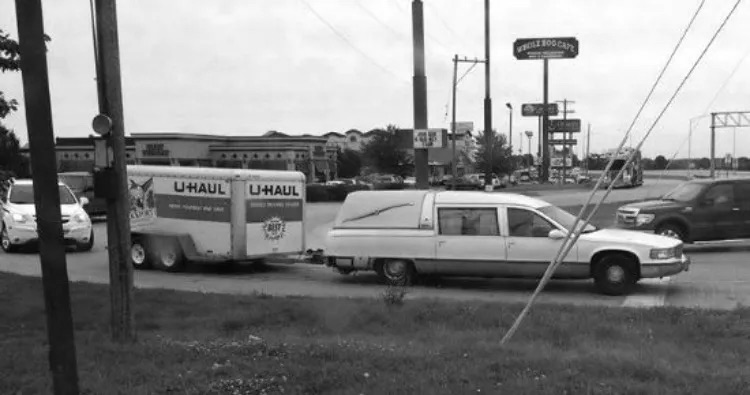 Grandpa would say, "When you die, and yes you will die, you will not be taking any of your stuff with you." I do love stuff though, I'll admit it.
I feel like that's a shared sentiment. But why are we so obsessed with buying things? It's supposed to feed our happiness? Or is it just a temporary bandaid for a deeper hole in our lives?
Material possessions are a quick shot of dopamine.
Grandpa would say, "When you die, and yes you will die, you will not be taking any of your stuff with you." I do love stuff though, I'll admit it.
I feel like that's a shared sentiment. But why are we so obsessed with buying things? It's supposed to feed our happiness? Or is it just a temporary bandaid for a deeper hole in our lives?
Material possessions are a quick shot of dopamine. There is power in decluttering your home and living more minimalistically. By letting go of “stuff” we are releasing some stress and anxiety. Physical clutter can lead to mental clutter. Research has shown there is a direct correlation between disorganization and messiness, and our ability to focus and feel at ease. I can personally attest to this.
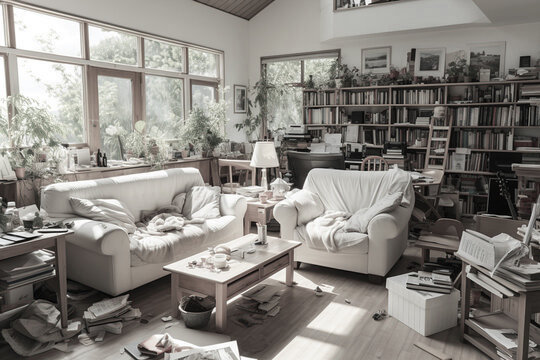
What Is a Hoarder?
My wife has told me I'm a low-key hoarder. I couldn't see it at first. I was holding on to all sorts of meaningless crap. A pocketwatch from 1972, boxes of books I'd already read and would never ultimately read because let's be real, if I haven't read it by now, and it's sitting in a box stowed away, then I'm probably never going to do it. That's the truth.I wind up at a blow out estate sale, and without even realizing it, I'm suddenly loading up my car with this dead person's stuff . Now my apartment is littered with their stuff. Why? Because it was $free.99 and if it's free, then clearly I should take it. If I don't want it then I'll just throw it out. But I'm lazy, so it'll sit on the floor now. My anxiety will kick in when I look at it, first saying "You took it so you should find a use for it" and then "I can't get rid of it because what if I need it". Normally when I finally get rid of something that's when I finally find a use for it. But again, that's only 1% of the time. In my head though this is what I believe, and it's all rooted in anxiety.
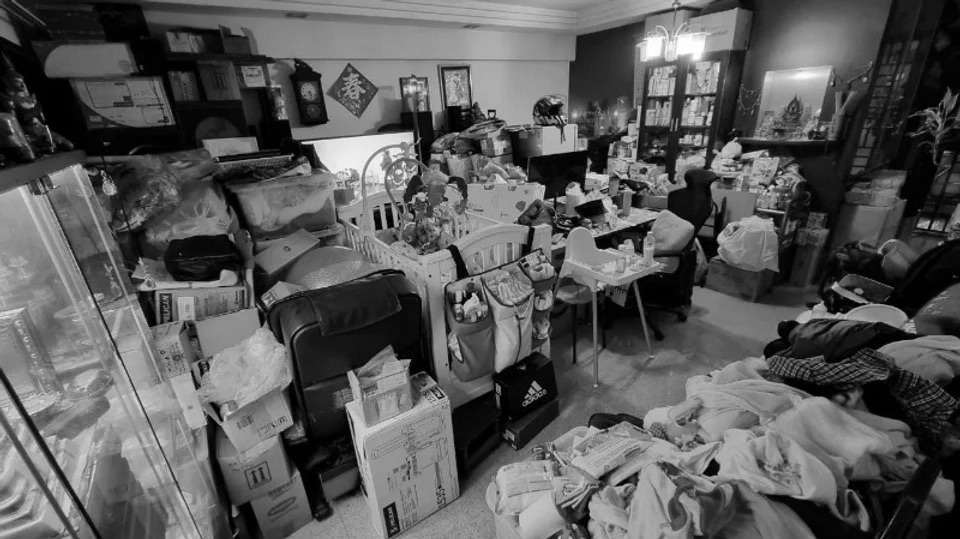 Take a look at the picture to the right. How does it make you feel? Do you think you could sit in that room and feel relaxed? Maybe read a book? This photo is an extreme
example of a hoarder. I probably don't need to spell it out to you but I will anyways.
Take a look at the picture to the right. How does it make you feel? Do you think you could sit in that room and feel relaxed? Maybe read a book? This photo is an extreme
example of a hoarder. I probably don't need to spell it out to you but I will anyways. A hoarder is a person who compulsively accumulates and stores excessive amounts of objects or possessions, often to the point where it interferes with their daily life, living space, and overall well-being.
If you can't find it because it's buried, how can you expect to use it?
The Low-Key Hoarder
Listen I get it. You have some emotional connection to that little figurine and it has to stay. And that sweater is old now, but there's a chance it might come back in style again soon. So you have no choice but to keep it. The thing is, you do have a choice. It's something I have to constantly remind myself. We all have a choice.We all have trouble letting go of things. It's almost guilt that has me hanging on. In our mind the "what if" statement immediately steps in. The second I get rid of it will be the second I come across the need for it. Or if I get rid of it, I may forget that memory attached to it. Well that memory is probably false anyways. And you are expelling precious energy into justifying a lesser degreee of hoarding. This is me.
The low-key hoarder might not actually have a house filled with stuff to the brim. It will take more time to fill up your closet and storage areas. Eventually though, things will start to find a place on the floor because there is nowhere left to put them.
And then about once a month I close my eyes and imagine that body of water nestled up in the mountains, and I start a donation pile. It's like without even trying, stuff just gets accumulated. Which is why it's so important to be aware of it. The accumulation is somewhat inevitable, but by keeping a state of awareness we can get ahead of it.
Practical Steps To Implement Minimalism
1. Declutter Regularly: Try to set a schedule where once a month you go through your entire place and ask yourself am I going to use this or need this? Take it to goodwill, donate the clothes to the less fortunate or even try and sell them if you are feeling extra ambitious.
2. Practice Mindfulness When Consuming: When purchasing something ask yourself: Do I need this or just want this? Do I have space for this??
3. One In One Out Rule : For every time you bring something new into your home you have to remove something.
4. Lower The Amount Of Storage Available: Try not to add to your storage space, the more space you have the more you will accumulate because it has a place to go. Things will end up out of sight and you won’t have to address the underlying clutter.
5. Detach Yourself: Remember that items don’t make up who you are, even if there is an emotional attachment they don’t define you as a person. They aren’t inherently tied to who you are.
6. Seek Support: Invite or family or friends to help you let go, sometimes it takes having someone else around to really allow yourself to let go, you feel more supported because someone’s physical presence gives grace.
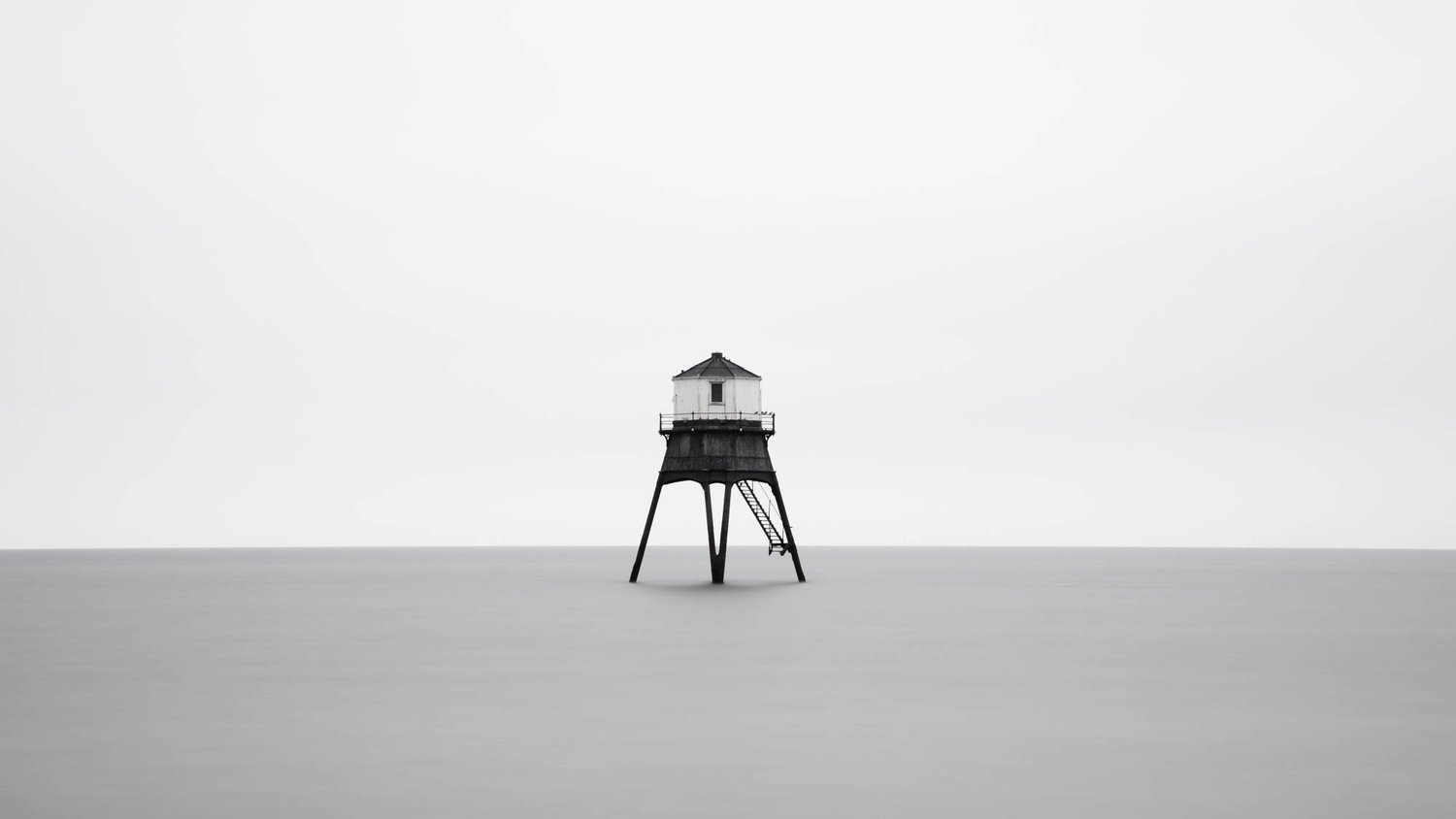
Accumulation Over Time Adds Up
Little bits tend to add up. Over the course of a few years you’d be surprised at how much extra stuff you’ve accumulated. If you are not making a conscious effort, chances are you'll fall victim to it. We all tend to be hoarders to some degree or another.You can stay more organized when you have less things. You are much more likely to know where everything is because there are fewer places where it could be. Before you purchase something new think to yourself do I really need this or do I just want this? If I do in fact get this and bring it home where will it go? Do I have the space for it or is it going to end up in a pile somewhere and disappear?
Set some time aside to start to declutter your home. If it feels overwhelming, then break it down into chunks. Start with the closet in the spare bedroom, or the front hall closet. Or maybe your living room. Start with only items on the floor or counters that don't have a true home. A donation pile can then begin and you can be well on your way.